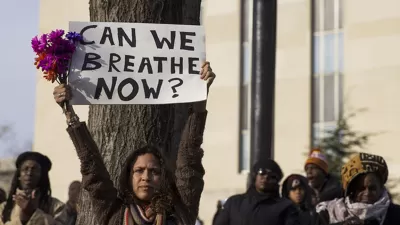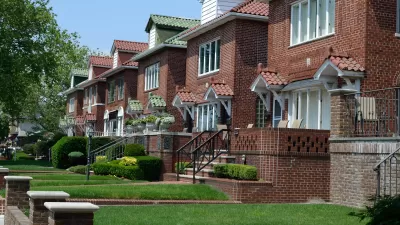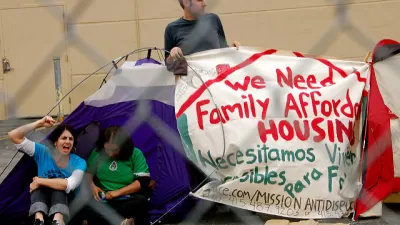The Black Lives Matter movement has seen legislative successes in advocating policies at the city level, but the Trump Administration will pose new challenges.

The Black Lives Matter (BLM) movement has been advocating for policy changes for years. According to Johnny Magdaleno, "they proposed policies that took a page out of progressive theories on urban development that would reverberate across the spectrum of race and class at the city level." Their goals include, "Shifting more federal funds out of police departments and into employment programs. Favoring community-based sustainable energy projects that employ neighbors," Magdaleno details. The movement, which is national has had success in targeting local politics, "influencing policymakers in the cities where M4BL’s main players operate: New York, Chicago, Philadelphia, Cleveland, Washington, D.C., Sacramento, Portland, Ferguson and a handful of others."
The election of Donald Trump and the federal government's adoption of his policy goals has presented a new suite of challenges. One example Magdaleno points out is "[Trump's] appointment to run the U.S. Department of Housing and Urban Development (HUD), Ben Carson, has expressed inconsistent opinions about federal assistance programs for low-income and underserved communities." While Ben Carson's appointment is only one of the many challenges the election of President Trump presents to the movement many hope that the divisive leader can motivate action from progressive citizens around the country.
FULL STORY: Movement for Black Lives Pushes for Victories City by City

Study: Maui’s Plan to Convert Vacation Rentals to Long-Term Housing Could Cause Nearly $1 Billion Economic Loss
The plan would reduce visitor accommodation by 25,% resulting in 1,900 jobs lost.

North Texas Transit Leaders Tout Benefits of TOD for Growing Region
At a summit focused on transit-oriented development, policymakers discussed how North Texas’ expanded light rail system can serve as a tool for economic growth.

Why Should We Subsidize Public Transportation?
Many public transit agencies face financial stress due to rising costs, declining fare revenue, and declining subsidies. Transit advocates must provide a strong business case for increasing public transit funding.

How to Make US Trains Faster
Changes to boarding platforms and a switch to electric trains could improve U.S. passenger rail service without the added cost of high-speed rail.

Columbia’s Revitalized ‘Loop’ Is a Hub for Local Entrepreneurs
A focus on small businesses is helping a commercial corridor in Columbia, Missouri thrive.

Invasive Insect Threatens Minnesota’s Ash Forests
The Emerald Ash Borer is a rapidly spreading invasive pest threatening Minnesota’s ash trees, and homeowners are encouraged to plant diverse replacement species, avoid moving ash firewood, and monitor for signs of infestation.
Urban Design for Planners 1: Software Tools
This six-course series explores essential urban design concepts using open source software and equips planners with the tools they need to participate fully in the urban design process.
Planning for Universal Design
Learn the tools for implementing Universal Design in planning regulations.
City of Santa Clarita
Ascent Environmental
Institute for Housing and Urban Development Studies (IHS)
City of Grandview
Harvard GSD Executive Education
Toledo-Lucas County Plan Commissions
Salt Lake City
NYU Wagner Graduate School of Public Service





























